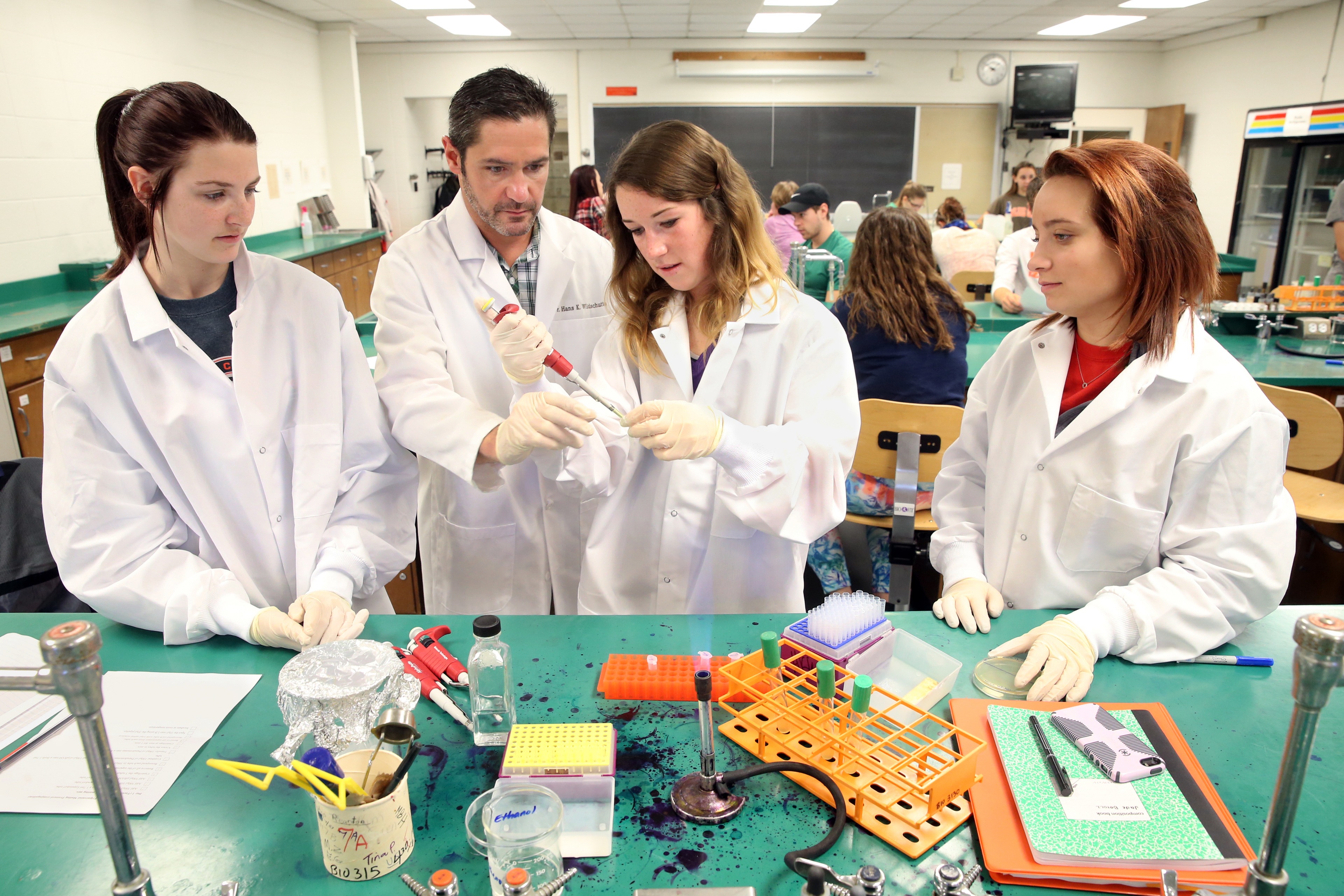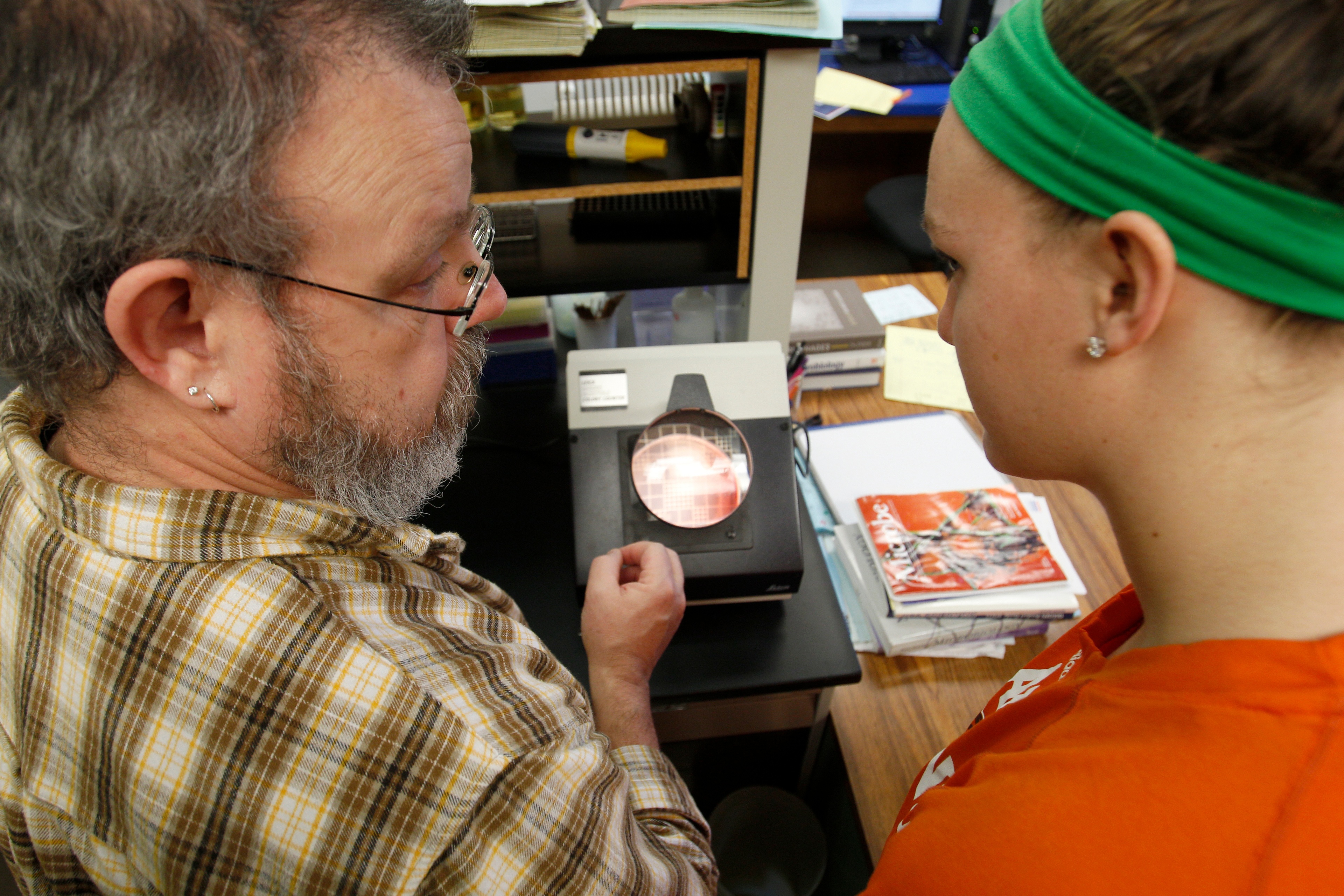
Bachelor of Science (B.S.)
Microbiology
Microbiology is the study of organisms that are too small to be seen with the naked eye. At BGSU, our microbiology program focuses on critical worldwide issues that range from multi-drug resistant pathogens to harmful algal blooms. Students not only learn about these current topics but also perform environmental and medical related research in their classes. Our curriculum is unique in combining education and research to promote students’ interests in science.
Quality classroom experiences
Classes and research labs offer the use of light and electron microscopes, ultraviolet and visible light spectrophotometers, imaging equipment, micromanipulators, incubators, and molecular biology equipment.
Career - what can you do with a microbiology degree?
Research opportunities are available to undergraduates enrolled in all years of the program and participation is encouraged.
Career paths
- Medical research
- Biotechnology
- Food safety
- Water quality
- Pharmaceutical industry
Quick Facts from the Bureau of Labor Statistics
Curriculum
The microbiology program is centered upon the life sciences and requires extensive coursework in both chemistry and biology. The major also encompasses mathematics and physics. Microbiology students participate in Tiny Earth, a program that provides students a hands-on approach to help discover novel antibiotics.

Sample courses
- Molecular Biology
- Immunobiology
- Evolution
- Microbial Physiology
The Microbiology program is part of the Department of Biological Sciences in the BGSU College of Arts and Sciences.
Accreditation
Bowling Green State University [BGSU] is accredited by the Higher Learning Commission. BGSU has been accredited by the Higher Learning Commission since 01/01/1916. The most recent reaffirmation of accreditation was received in 2022-2023, with our next reaffirmation of accreditation scheduled for 2032-2033. Questions should be directed to the Office of Institutional Effectiveness.
Request Information
Updated: 09/12/2024 09:40AM

